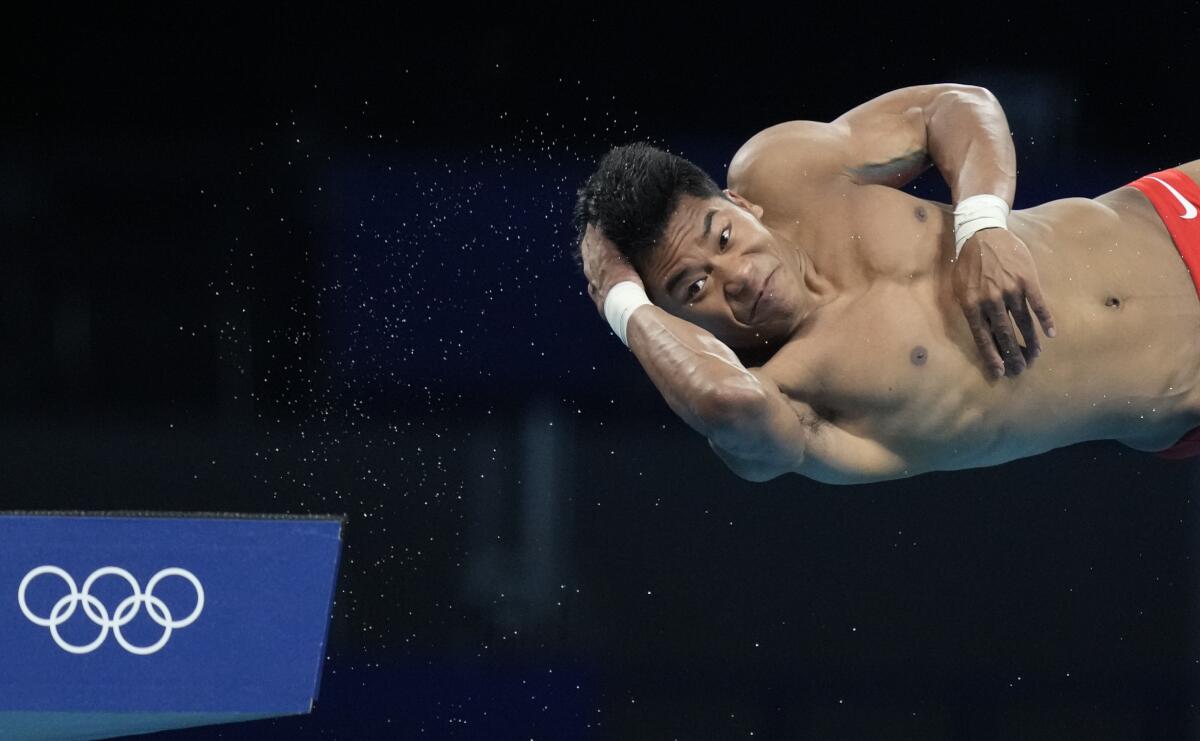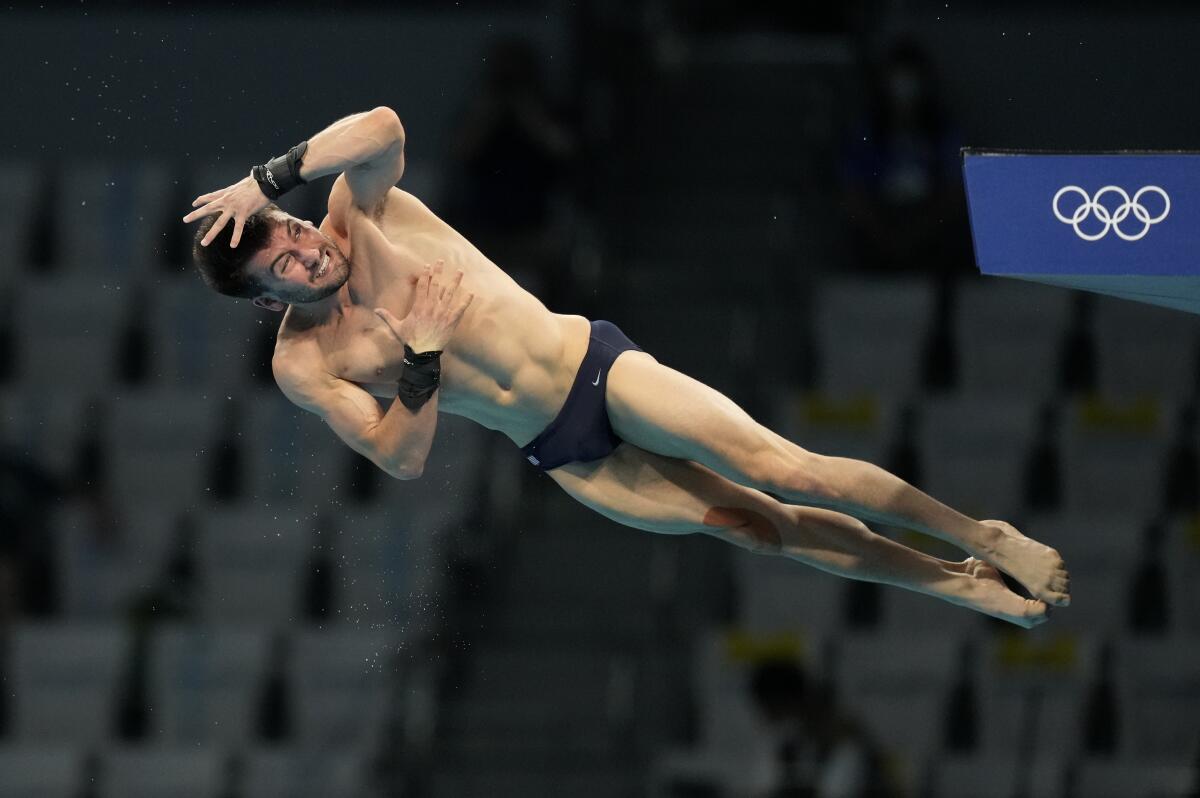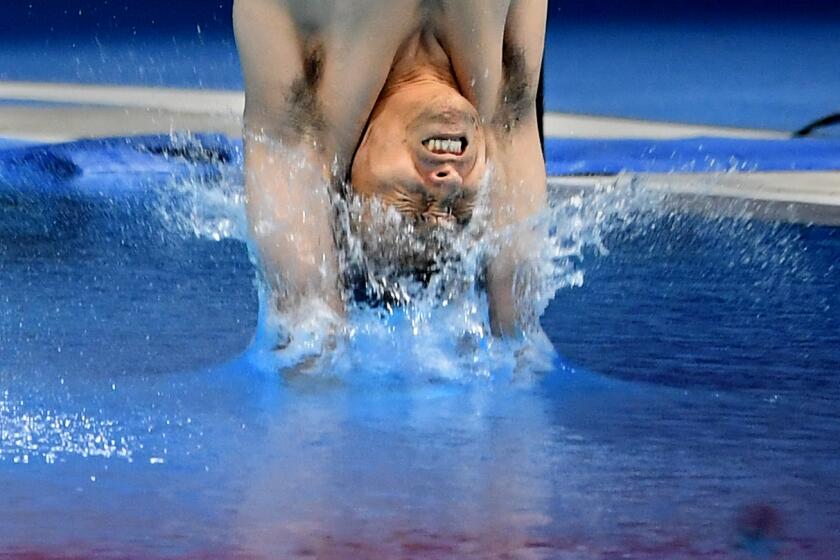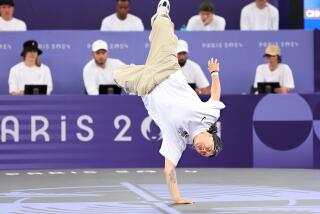Jordan Windle’s life journey to the Olympics started in a Cambodian orphanage

TOKYO — Jordan Windle shouldn’t have finished ninth in the Olympic 10-meter platform diving final Saturday. He shouldn’t even have been in Tokyo.
In fact, he probably shouldn’t be alive.
A year after he was born, Windle’s parents died and he was placed in an orphanage in Cambodia, where his future was grim. At about the same time a Florida man named Jerry Windle was flipping through a magazine while waiting to see his doctor when he stumbled across a story about a single parent who had adopted a Cambodian child.
Windle had tried to adopt a child in the U.S. but as a single gay man, he had been rejected. So he called the agency mentioned in the story and received a photo of an orphan in the mail. The second he saw the picture, he said, he knew he was looking at his son.
L.A. native leaves legacy as an advocate for better medical treatment for Black women during pregnancy and equitable treatment for all female athletes.
Five months later that hunch became reality. The boy was 2 and weighed just 16 pounds.
“My dad has done so much for me,” said Jordan, now 22. “We’ve moved to tons of states, multiple houses just for me to be able to keep up with the program and stay at a high level of diving. I even dropped out of a brick-and-mortar school to go into online school to increase the number of hours that I could train.
“And for him to always support me and spend the money necessary for me to keep following my dream, I’d give him anything for that.”
Windle was joined in Saturday’s platform final by Huntington Beach’s Brandon Loschiavo, who finished 11th, capping a successful Tokyo Games for USA Diving. The Americans won three medals; only China, which swept the top two spots in 10 meters to claim its 11th and 12th medals of the Games, won more.
Chinese divers won seven of eight diving events, sweeping the top two spots in four of them.
For Windle, the road to Tokyo may have begun in Cambodia but it really picked up when he was 7 and his father enrolled him in aquatics camp in South Florida. He was seen there by Tim O’Brien, whose father Ron had coached four-time Olympic champion Greg Louganis. O’Brien told Jerry if he got his son into a diving program, the boy had a chance to compete in the Olympics.
So he did, eventually moving to Indianapolis, home to USA Diving’s national training center. The family later relocated to North Carolina, where Jordan trained under Duke coach Nunzio Esposto, before Jordan went to Austin, where he competes for the University of Texas. Louganis has been a mentor for much of that journey, earning the 5-foot-4 Jordan the nickname “Little Louganis.”
Olympic divers experience many of the same injuries that affect athletes of more traditional contact sports, and the pain begins before they hit the water.
Along the way Jordan won six national junior titles, seven U.S. senior titles and two NCAA titles, setting collegiate records in both the 3-meter springboard and platform events. He qualified for his first Olympic trials in 2012, when he was 13. And his father was there for most of those triumphs, though he couldn’t travel to Japan because of COVID-19 protocols.
“My family has sacrificed so much just for me to get to this point,” Jordan said after winning a spot into the final day of diving in Tokyo.
“Knowing that he’s there supporting me is everything that I want. Through the 15 years that I’ve been diving, I’ve just been trying to make him proud and make him happy.”
He and his father co-authored a book, “An Orphan No More: The True Story of a Boy: Chapter One” about a white rooster who adopts a brown duckling. Louganis wrote the foreword. Jordan, who was picked on as a boy because of his interracial adoption by a gay father, also has become a vocal and visual supporter of LBGTQ rights and children who are bullied.
But if Jordan’s backstory is rare enough to merit a book, another obstacle he’s had to overcome is one he shares with many platform divers.

“I’m terrified of heights,” he said. “I hate the 10-meter.”
So does Loschiavo, 24, whose first trip to the top of the 33-foot-high platform as a boy ended with him slinking back down the stairs. He learned to control those fears as a teenager by riding roller coasters at Magic Mountain.
“I probably would have never jumped off 10-meter without Six Flags. Which is a weird thing to say,” Loschiavo said. “But the roller coaster Goliath was a game changer for me. Every time I walked on the 10-meter, I would look down and go ‘this is way too high.’ And I couldn’t do it.
“[But] I buckled up and went on something 200 feet high. That just kind of like desensitized that [33] feet for me. Ever since that moment, I was able to jump. So, massive win.”
Loschiavo’s Olympic journey began when he was a 4-year-old gymnast and told his mom, matter-of-factly, that he was going to the Games someday. It wasn’t a stretch since he was the youngest in a family of five exceptional athletes. His father had competed in track and his mother in gymnastics while his brother and sister both went to college on athletic scholarships.
By junior high, Loschiavo had burnt out on gymnastics and needed a new sport if he was to keep his promise to his mother. Diving was not only right for his body type — he’s a slender 5-6 — but his gymnastics background was a huge plus.
“It’s just learning how to be mobile with your body,” said Loschiavo, who is also a former national and NCAA champion. “I had fantastic coaches. They just taught me how to move. And they taught me to know where my body is at all points. That was instrumental to being an elite diver for sure.”
Hitting the water at 35 mph, as platform divers do, hasn’t been a problem. However, the fear of heights is something that still follows him up the staircase to the top of the platform.
“Absolutely. Every single time,” he said. “Learning how to manage the fear is the biggest part for the elite divers. If you asked every single one of them, they would tell you they’re petrified.”
More to Read
Go beyond the scoreboard
Get the latest on L.A.'s teams in the daily Sports Report newsletter.
You may occasionally receive promotional content from the Los Angeles Times.










